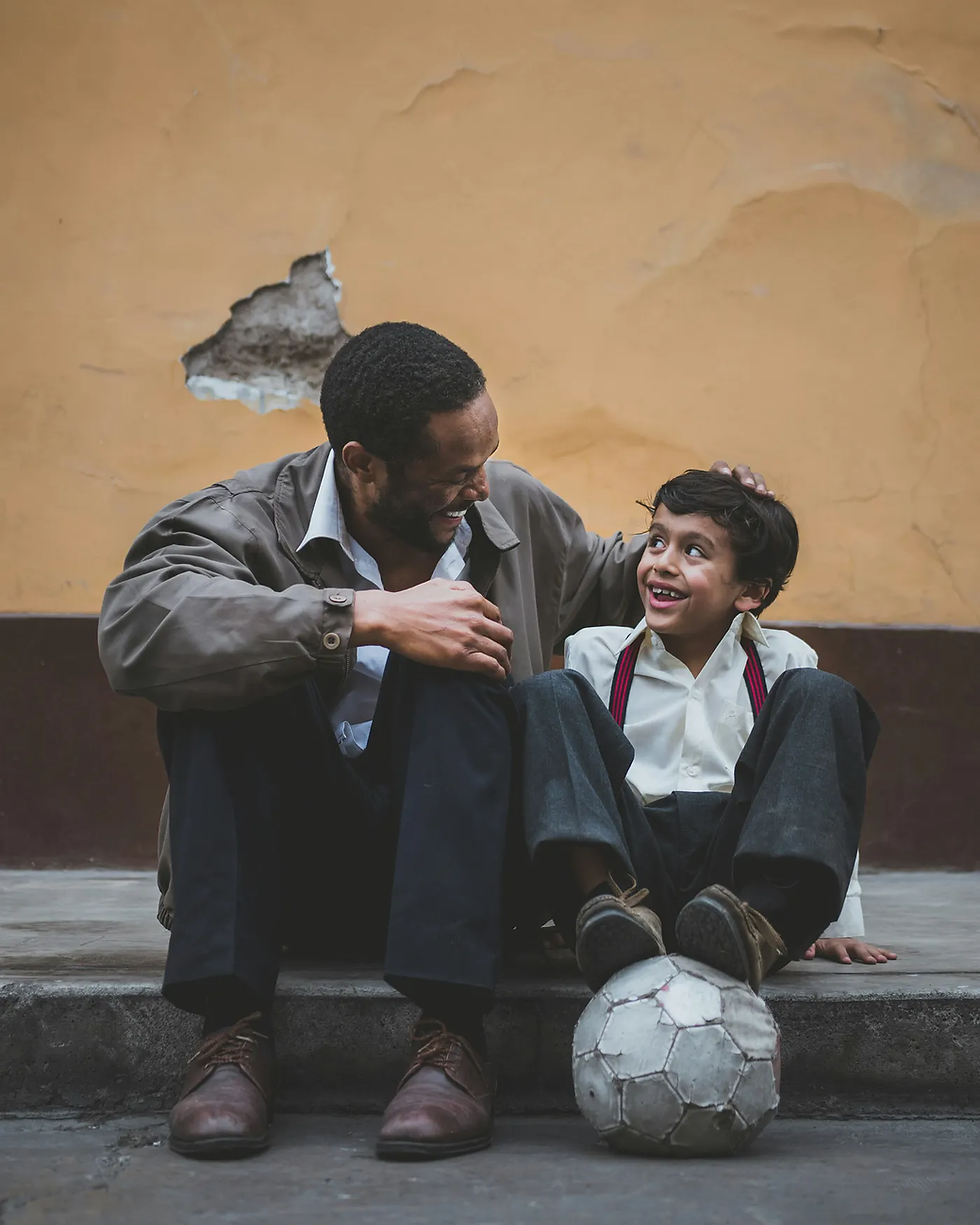The Surprising Joy of Realising Our Parent Is Human
- Julian-Pascal Saadi
- Nov 13, 2025
- 3 min read
Updated: Dec 28, 2025
Reflections on loss, grief and relief in the parent-child relationship.

“You promised me,” pleads Debbie in Shameless (US, S2E11), begging her mother, Monica to get out of bed during the Thanksgiving episode.
Monica, who lives with bipolar disorder and substance misuse, is sunk in depression and unable to move. Her youngest daughter is left to grapple with a new and painful question: what does it mean when a parent can’t, or won’t, be a Parent with a capital P?
This scene dramatises a universal moment: the pain of discovering that our parents do not always behave like Parents. It got me thinking: what do we mean when we say “Parent”, and how do we form ideas about what a Parent should be?
The term parent comes from the Latin word Parēns, meaning “one who gives birth” or “brings forth”. It refers to someone who is a creator of sorts. Over time, it has come to include not only biological parents, but also someone who occupies a parental role – be it adoptive, an auntie, or a friend.
The parental figure is what I call the Parent here – the person we imagine, need and wish for. The parent (with a small 'p') is the real, fallible person (the real aunt, friend or adoptive parent). Likewise, the child is the person who exists in reality, and the Child is the one parents imagine – the idealised and wished-for child.
Philosopher and psychoanalyst, Julie Resch, reflects on this link when she talks about the word Mum. She says:
“I call my mum, mum. And my child calls me mum. Same word, different people.
No one else calls me that except for my child and no one calls my mum that except for me.
I have a name and my mum does too, I think.
But we vanish behind Mum. There’s something frustrating about this depersonalisation. The word Mum strips me of my identity. It reduces me to a function, a role”
What is captured here is how the role of Parent erases individuality. I would add that the role of Child also erases individuality.
The distinction between the imagined Parent and the parent we have, or the imagined Child and the child we have, can be a cause of great suffering. This may seem somewhat obvious to some, but it’s a theme that tends to recur in the clinic and in popular culture.
The dynamic is simple:
1- The parent tries to create the Child they hope for, struggling to face the child they have.
2- The child tries to create the Parent they hope for, struggling to face the parent they have.
3- Together, they end up in an unconscious dance aimed at sustaining the illusion that, with enough effort, the hoped-for Parent or Child will one day appear. This is an illusion that offers relief from the pain of reality. And in this case, the reality is the fact that who we wish for is not who is there.
Seeing our parents and children as individuals, rather than fantasies that cannot be lived up to, can be painful. But it also opens up a possibility for a more genuine kind of relationship – one which honours each person’s sense of individuality. This might come with a feeling that a new relationship is possible, or it might bring with it a sense that no relationship is possible at all.
Either way, once the illusion fades, a grief process begins which can alter the shape of the parent-child relationship.

